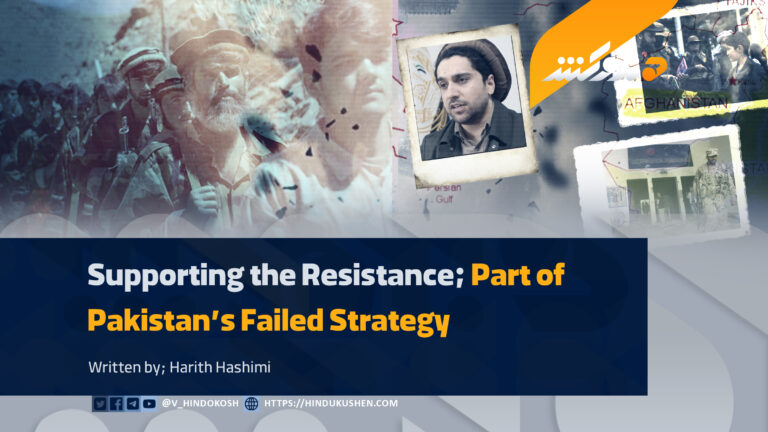Written by: Harith Hashimi
During the clashes between Pakistan and Afghanistan, Pakistan suffered military defeat, lost politically at the negotiating table, and relations became even more strained, leading to a trade embargo and Pakistan losing its major export market and an affordable route to other Asian countries.
Pakistan is also home of severe insecurity, major explosions, numerous casualties, and political, economic, and social instability, which cannot be ignored in any way; the flames of war have reached even Islamabad, and officials are no longer safe even in the safest capital.
To prevent the flames of war from spreading from this country to Afghanistan, some proxy groups are supported and used to protect their interests; in their audio message, members of the imaginary Resistance Front added, referring to Pakistan, that the host countries are looking for people who seek their interests from them.
The National Resistance Front and Pakistan’s military intelligence (ISI) have been in contact for the past few years, and they have also held meetings in Pakistan, Turkey, and other countries to increase understanding. Now that Pakistan wants to put pressure on Afghanistan, it is supporting the National Resistance Front alongside ISIS and other proxy groups and transferring its own instability to Afghanistan.
This strategy is failing because political, security, economic, and social instability are institutionalized in Pakistan. Afghanistan has turned its back on further instability and is taking steps toward progress thanks to the central government’s sovereignty. Malicious groups have been suppressed, and Pakistan can no longer make its country safe and its neighbors unsafe with its failed strategies.
Note: The articles, essays, and comments published by the Voice of Hindukush only reflect the views of the authors & writers and do not necessarily represent the agreement of the Voice of Hindukush.




